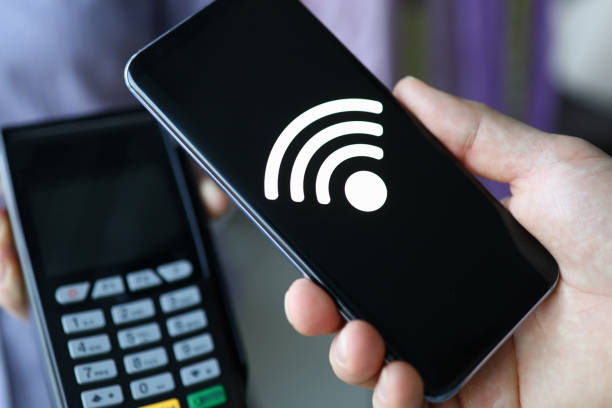Introduction
Do you ever feel like you’re being watched online? That’s because—you are. From social media giants to advertising trackers and even your internet provider, your digital activity is constantly being monitored, logged, and sold.
If that makes you uncomfortable, you’re not alone. Whether you want to protect your personal data, avoid surveillance, or just browse without being followed by creepy ads, this beginner’s guide will show you how to stay anonymous online—step-by-step and in plain English.
1. Understand What “Being Anonymous Online” Really Means
Let’s clear this up first: Anonymity isn’t the same as privacy or security.
-
Anonymity means no one knows who you are.
-
Privacy means no one sees what you’re doing.
-
Security means your data is protected from being stolen or hacked.
Staying anonymous online means leaving as little personal trace as possible—your name, IP address, location, or habits.
2. Use a Privacy-Focused Browser
Your browser is your gateway to the internet—and it can leak a ton of information.
Top Private Browsers:
-
Brave: Built-in tracker blocker and Tor option
-
Mozilla Firefox: Customizable privacy settings
-
Tor Browser: Routes traffic through the Tor network for anonymity
Turn off cookies, block third-party scripts, and avoid browser fingerprinting by tweaking the settings or using extensions.
3. Browse in Incognito Mode (But Know Its Limits)
Incognito or private browsing sounds safe, but here’s the truth: It only hides activity from others who use your device.
It does NOT:
-
Hide your IP address
-
Stop websites from tracking you
-
Keep your activity private from your ISP or employer
Use it for light privacy, not true anonymity.
4. Use a VPN to Mask Your IP Address
A VPN (Virtual Private Network) encrypts your internet traffic and routes it through a server elsewhere—hiding your real IP.
Top VPNs for Beginners:
-
NordVPN
-
ProtonVPN
-
Surfshark
Always choose a VPN with a no-logs policy and strong encryption. Avoid free VPNs—they often sell your data.
5. Switch to Anonymous Search Engines
Google knows everything you search—and uses it to profile you.
Try These Instead:
-
DuckDuckGo: No tracking, simple interface
-
Startpage: Google results without the Google snooping
-
Brave Search: Independent index and private by default
You won’t miss Google once you switch.
6. Stop Using Big Tech Email
Email is a huge data leak. Services like Gmail scan your messages for advertising purposes.
Private Email Alternatives:
-
ProtonMail: Based in Switzerland, end-to-end encryption
-
Tutanota: Open-source and ultra-private
-
Mailfence: Focused on secure communication
Create aliases for different sites and keep your real email hidden.
7. Block Ads and Trackers
Ads aren’t just annoying—they track you across the web.
Must-Have Extensions:
-
uBlock Origin: Blocks ads and trackers
-
Privacy Badger: Learns and blocks trackers automatically
-
HTTPS Everywhere: Encrypts your connections
Install them in your browser and forget about them—they work silently in the background.
8. Limit What You Share on Social Media
Every photo, like, or check-in adds to your digital fingerprint. Even if your profile is private, data leaks still happen.
Smart Habits:
-
Use a pseudonym or separate profile for private browsing
-
Avoid real-time posting
-
Turn off location tagging
Be mindful—the internet never forgets.
9. Create and Use Aliases or Fake Info
You don’t need to use your real name or address everywhere.
Use Fake Info For:
-
Signups
-
Newsletters
-
Sketchy websites
Tools like Fake Name Generator or 10MinuteMail can give you temporary aliases.
10. Use Encrypted Messaging Apps
Your regular text messages (SMS) are not private.
Use These Instead:
-
Signal: Open-source, fully encrypted, trusted by experts
-
Session: No phone number needed
-
Threema: Swiss-based with strong encryption
Never use WhatsApp or Messenger for sensitive chats, even though they offer encryption—they’re still owned by Meta.
11. Don’t Reuse Passwords
Using the same password across sites is a goldmine for hackers—and it makes you trackable.
Solutions:
-
Use a password manager like Bitwarden, 1Password, or KeePass
-
Enable two-factor authentication (2FA) wherever possible
The less you reuse, the harder you are to trace.
12. Manage App Permissions
Mobile apps often access way more than they need.
What to Check:
-
Location
-
Microphone
-
Camera
-
Contacts
Go to your phone’s settings and revoke unnecessary permissions regularly.
13. Avoid Free Public Wi-Fi (Or Use It Safely)
Coffee shop Wi-Fi might be free, but it’s also a hotspot for hackers.
Safer Wi-Fi Use:
-
Always connect through a VPN
-
Never log in to banking or sensitive sites
-
Disable automatic connection to open networks
Think of public Wi-Fi as a shared toothbrush—just don’t trust it.
14. Think Before You Click
Phishing emails, fake ads, and shady links are traps.
Tips:
-
Don’t click unknown links in emails
-
Use link preview tools (like hover-over)
-
Double-check domains (e.g., amaz0n.com ≠ amazon.com)
A single click can reveal your IP, location, or install malware.
15. Use Cryptocurrency for Anonymous Payments
If you want to make private purchases, avoid traditional payment methods.
Use Crypto Wisely:
-
Use Monero for maximum anonymity
-
Bitcoin is semi-private—use mixers if needed
-
Never link crypto wallets to your real identity
Privacy-focused crypto = digital cash.
Conclusion
Staying anonymous online isn’t just for whistleblowers or hackers—it’s for anyone who values their digital freedom



